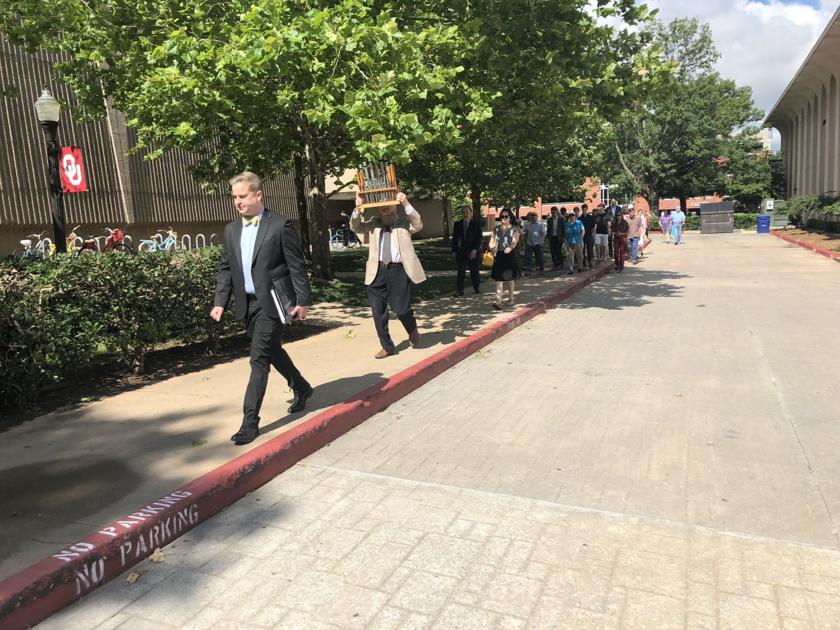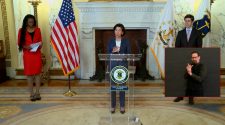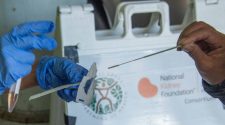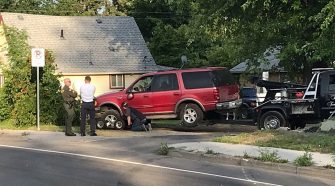Several faculty and staff members of the American Organ Institute were terminated Aug. 14 as the university continues with its plan to close the institute.
Nolan Reilly, director of music at St. Thomas More University Parish, AOI alumnus and organizer of a June 17 event where supporters of the institute marched to Evans Hall, said four of the seven remaining employees in the AOI were terminated. Reilly told The Daily the institute would close by the end of the academic year, despite student and alumni efforts to keep the institute open.
Reilly said the university has refused to change its plan to close the institute despite continued fundraising by the AOI in an attempt to independently fund its programs.
“The university told us we needed an $8.5 million endowment to keep the doors open in perpetuity,” Reilly said. “$5 million of that was supposed to come from (the Wyncote Foundation), and (the) university called them and told them that they were not able to contribute to the AOI because they had already made the decision to close.”
On June 15, Reilly told The Daily that the institute had enough independent funding to remain open for two to three years, but the university “indicated that they are not interested in” the offer.
Reilly said $6.6 million has been raised since the university announced its plan to close the institute. He also said interim OU President Joseph Harroz, Senior Vice President and Provost Kyle Harper and Chief Financial Officer Ken Rowe have been unreceptive to meeting with supporters of the institute.
“Those three people have never been available for a meeting with any member of the AOI,” Reilly said. “(Administrative assistant) Sherry Evans informed me that the president was too busy to meet with any of us today … and she said next week would not work. I said ‘how about any time in the future,’ and she said ‘I’m sorry, the president is just too busy.’”
According to a June 17 OU press release, the institute’s annual operating cost is $400,000. Reilly said the AOI makes roughly $200,000 each year through contracts for organ maintenance and repair, as the only pipe organ workshop in Oklahoma.
In the release, the university announced they would “teach out” the students still enrolled in the organ technology program, a degree program which would be eliminated with the AOI’s closure. The program is the only one in the country which teaches students how to repair, build and maintain pipe organs, Reilly said. In an email, Reilly expressed concern about students who have more than one year left in the organ technology program and master’s students who are uncertain if they will be able to continue their studies.
If the institute closes, students will still be able to receive degrees in organ performance, according to the June 17 press release.
Incoming students learned they would have to alter their degree path or change their major entirely due to the AOI’s planned closure and removal of the organ technology program, Reilly said.
“OU’s AOI had a 100 percent job placement rate, and that is one of the main reasons I decided to come to OU and study organ technology,” said Noah Smith, an incoming freshman who intended for the organ portion of his double major to have an emphasis on organ technology. “The option to transfer to a similar program is not there because a similar program does not exist.”
Daniel Gauger, another freshman who intended to study organ technology, said incoming students were not communicated with about the future status of the organ technology program.
“The freshman students weren’t really informed about the situation at OU,” Gauger said. “In fact, when I came to OU for my orientation, when I was setting up my classes, even my adviser did not know the status of the AOI. Nothing was clear, nothing was told to us.”
Gauger said without the institute, he may not have decided to attend OU in the first place.
“If the AOI were not here, I probably would not have thought of Oklahoma as the place for me to come to,” Gauger said. “This decision is totally on the university. We gave them the facts … that we can support ourselves.”
Smith was informed he would have to make a change to his academic plan the morning after he finished moving in on Aug. 14, he said, despite sending an email in June declaring his intent to enter the program.
“I believe the university let us get settled down and then brought this news to use to ensure we wouldn’t go someplace else when we heard,” Smith said. “Why else would they wait this long?”
Smith said the loss of the program is a blow to not only the state, but the entire country.
“Not only has Oklahoma lost their organ tuners and repairmen, but the United States has lost its collegiate organ technology study option,” Smith said.
The decision to close the institute, Smith said, is based more in politics than financial issues. John Schwandt, director of the American Organ Institute, presented the university with a revised budget to cut costs at the institute and help it remain open through its own funding, but this was turned down, Smith said. The university planned to close the institute during former OU President James Gallogly’s tenure, and Smith said he feels a grudge Gallogly held towards former OU President David Boren motivated the decision.
Smith said the news was an unexpected jolt that has clouded his arrival on campus.
“This decision came as a shock to me, and has certainly ruined my first day of school at OU,” Smith said. “I have to arrive at college and immediately change my major. I was very excited to study organ technology — it’s the reason I came to this university — then it’s suddenly canceled. That’s pretty much all I can say.”
The Daily reached out to OU Public Affairs Aug. 16 and will update this story with more information as it becomes available.


















